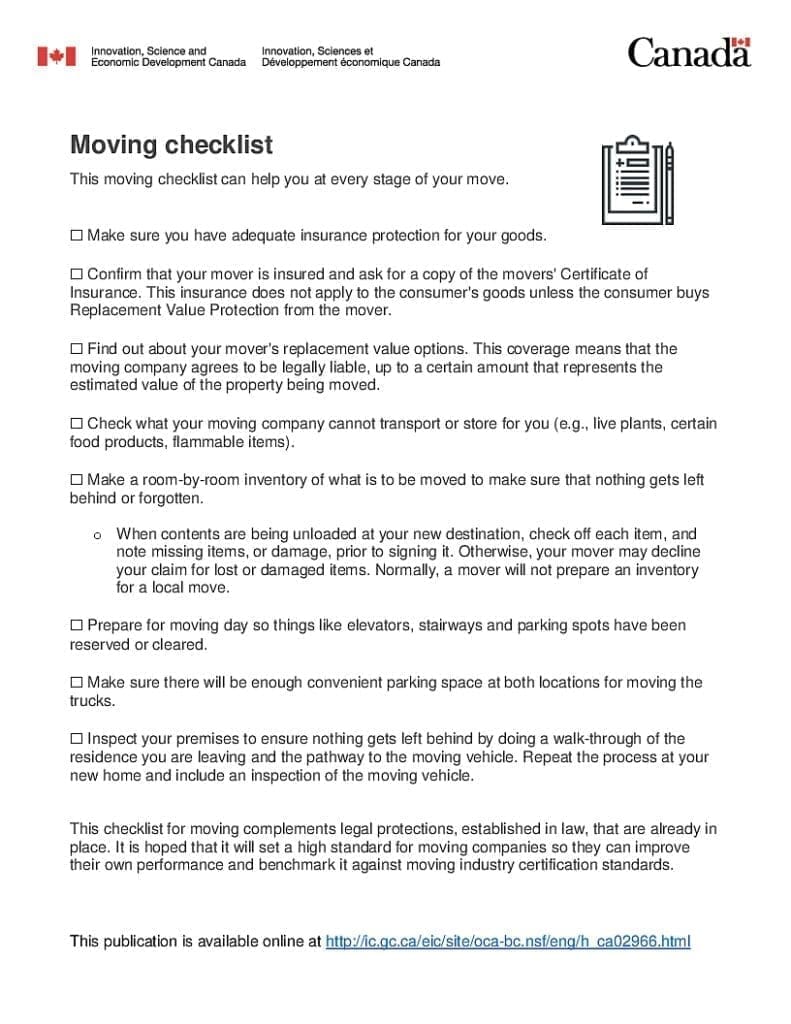What You Must Know
For every positive experience someone has with the moving industry, someone always has a negative experience. Most negative experiences happen because people are unaware of their responsibilities and rights during moving.
When choosing a moving company, ask for a copy of the ‘Moving Advice’ booklet created by Innovation, Science and Economic Development Canada. It contains a wealth of information, including details on the types of insurance that movers can provide, how to limit a mover’s liability for your belongings, the difference between binding and non-binding estimates, and much more.
Reading the booklet is essential as it will equip you with the necessary knowledge to ensure a smooth and stress-free move.
Moving Companies
Movers typically provide two types of moving insurance: Full Value Protection or Release Value of 60 Cents per Pound per Article. Understanding the difference between these insurances is essential to avoid disputes after the move. Unfortunately, there have been reports of moving companies overcharging people once the movers arrive. Some of these reasons are legitimate, while others are not. When a moving company prepares an estimate for you, they must inform you of acceptable forms of payment at the drop-off point. You could pay much more than your original estimate if you and your mover operate under a non-binding contract. Therefore, it is crucial to ensure that the agreement and terms you agreed to are binding quotes before anything is done between you and your mover. This will limit any illegal activity that the mover might perpetuate.
If a person is overcharged by a mover when it’s time to unload their belongings, it can cause anger and prompt them to seek legal action. However, it’s important to note that the Government of Canada or the RCMP cannot assist.
Filing Claims
The Canadian Government cannot aid in filing a court injunction against your chosen moving company. However, reviewing the Moving Checklist will reveal a finite window to claim against the said company for any incurred damages or losses during the move. Beyond this period, the company is not obligated to recognize your claim. This time frame is dictated by company policy, not Canadian law.
Before you Move
Read the Moving Advice website created by the Government of Canada. It outlines consumers’ and moving companies’ rights and responsibilities and other essential advice not mentioned in the checklist below.






